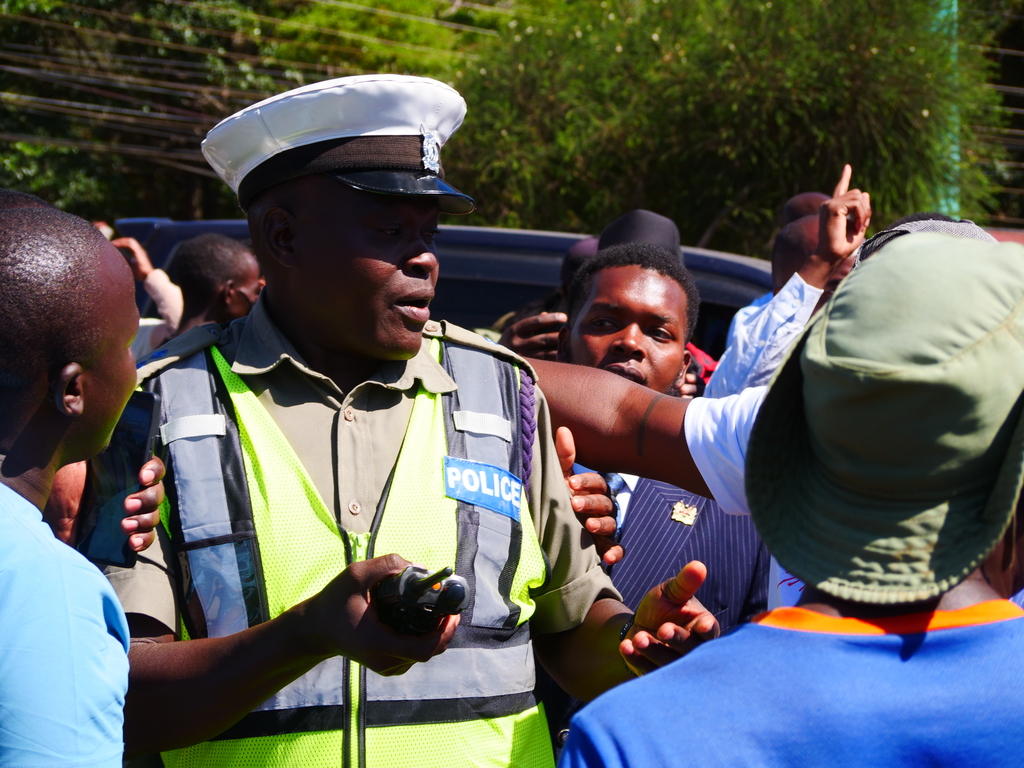Scores of protesters gathered in Nairobi on Monday, demanding justice after 31-year-old Albert Omondi Ojwang died in police custody.
Ojwang, a teacher and blogger, was arrested on Friday in Homa Bay for allegedly defaming Deputy Inspector General of Police Eliud Lagat in a social media post on X.
Two days later, he was found unconscious in a cell at Nairobi’s Central Police Station and subsequently pronounced dead at the hospital.
Kenyan blogger dies in police custody after X post targeting police chief
Ojwang’s arrest followed a complaint filed by Deputy IG Eliud Lagat, who claimed his name had been tarnished online. Instead of being detained locally, Ojwang was transported over 350 kilometres to Nairobi, raising serious legal and ethical questions. According to police, he suffered head injuries after “hitting his head on a cell wall.”
But that explanation is being strongly challenged. The family’s lawyer, Julius Juma, said Ojwang’s body showed signs of physical trauma, including swelling on the head, nose, and ears, along with bruises on his hands and shoulders. “These injuries are inconsistent with a single impact,” Juma told reporters outside Nairobi City Mortuary, where a protest was held.
A postmortem conducted on Tuesday revealed Ojwang died from severe head trauma, neck compression, and multiple soft tissue injuries—findings consistent with assault, not a self-inflicted fall.
The autopsy was carried out at Nairobi Funeral Home by Dr. Bernard Midia and Dr. Caroline Njoroge, alongside five other pathologists, including observers from the Independent Medico-Legal Unit (IMLU) and the Police Reforms Working Group.
Police brutality in Kenya sparks public outcry and online activism
The Independent Policing Oversight Authority (IPOA) has launched an inquiry. In response to the backlash, Inspector General of Police Douglas Kanja announced that all officers on duty during Ojwang’s detention have been interdicted.
They’ve been suspended from active duty and will receive half pay pending the investigation.
Online, outrage is growing. “We demand answers. This death cannot be swept under the rug,” journalist Lynn Ngugi wrote on X. Former Attorney General Justin Muturi also weighed in, calling the alleged suicide attempt in custody “outrageous” and a clear sign of institutional rot.
Ojwang’s death comes as Kenya marks one year since protests over tax hikes and corruption, during which more than 60 people were killed.
Rights groups now warn of a disturbing pattern—where digital dissent is being met with intimidation, arrests, or worse. Just last week, software developer Rose Njeri was charged under cybercrime laws for creating an app that opposed a government finance bill.
With the autopsy findings now public and investigations underway, citizens and rights groups are demanding transparency, accountability, and lasting reform in Kenya’s police service. Many fear that this may not be an isolated case, but rather part of a growing crackdown on freedom of expression in Kenya.















